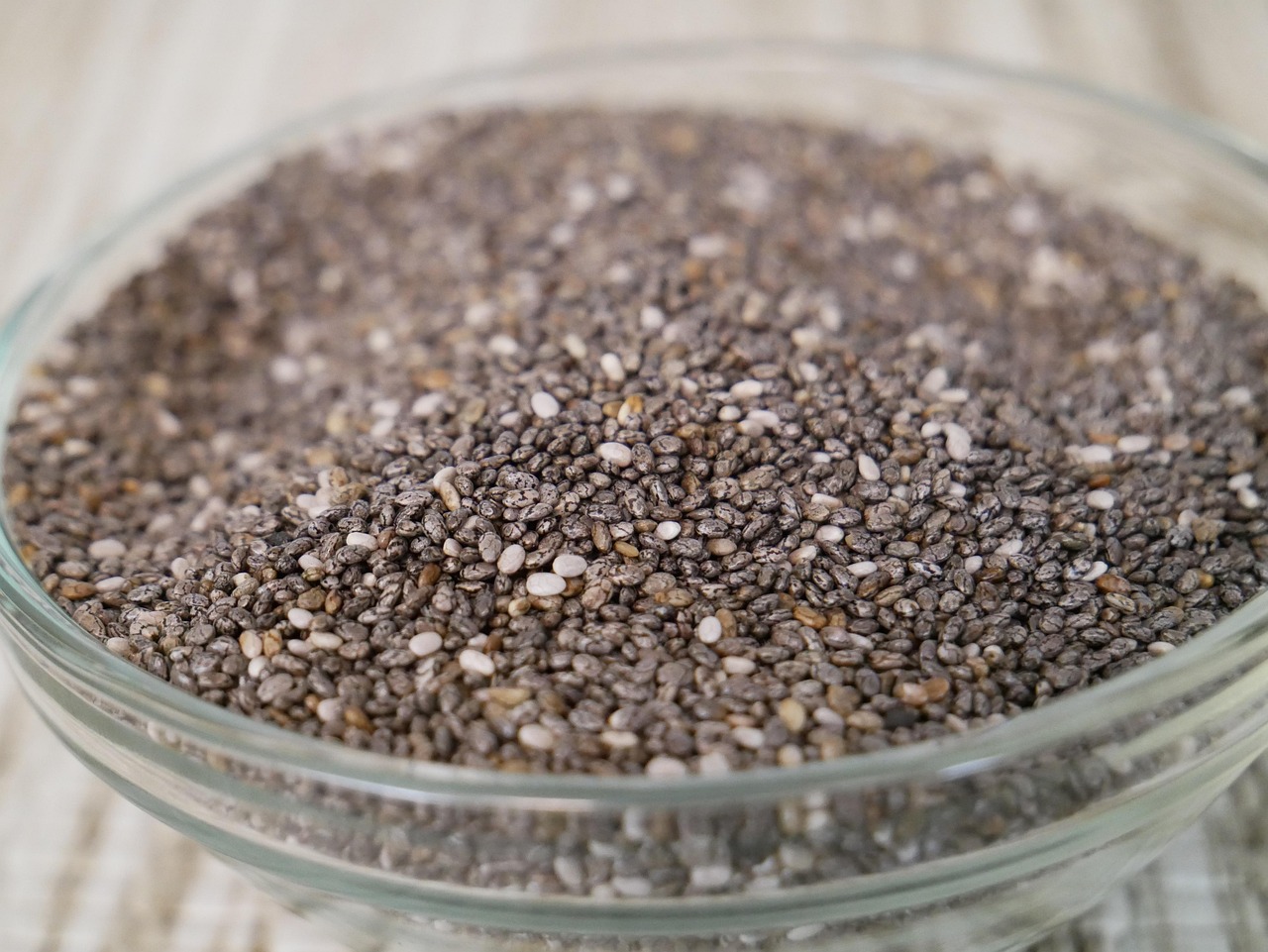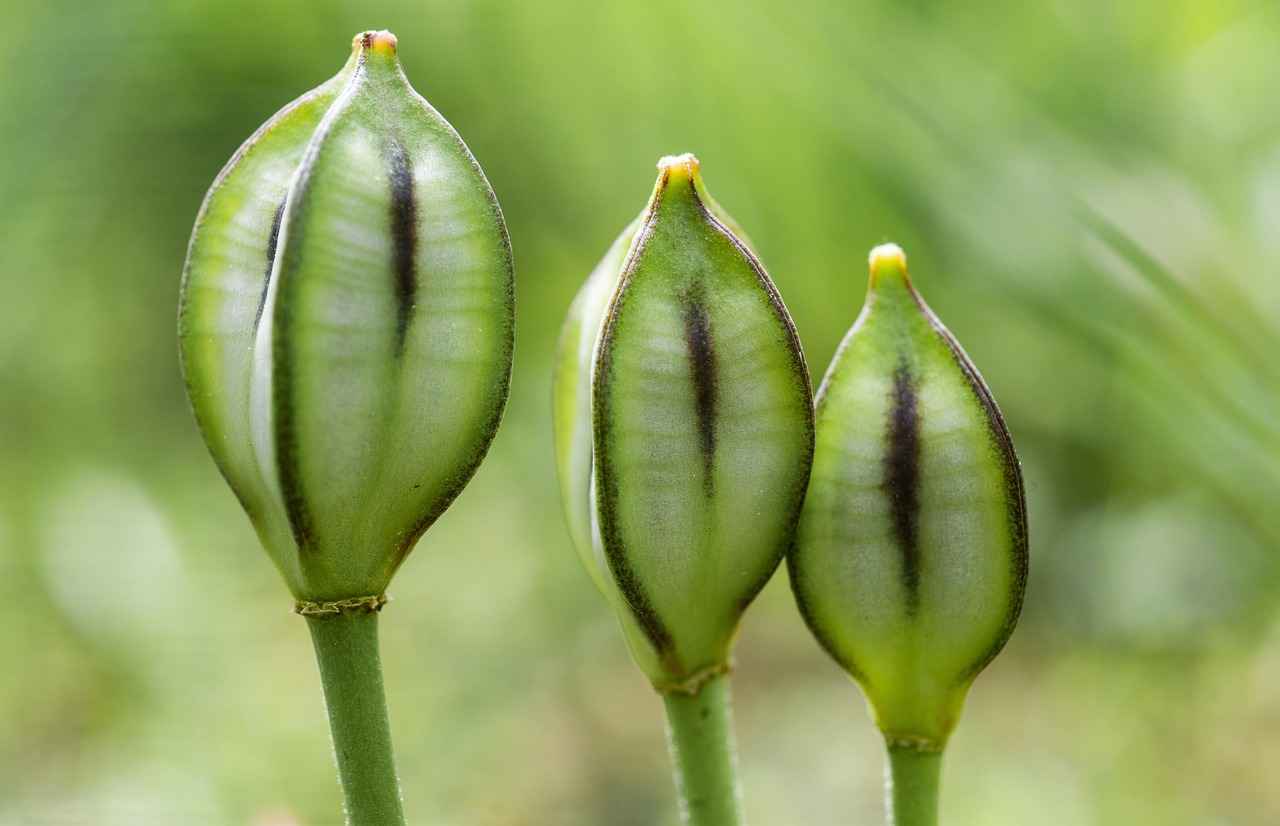When it comes to enhancing your health and culinary experiences, chia seeds stand out as a remarkable superfood. These tiny seeds are packed with nutrients, fiber, and omega-3 fatty acids, making them a popular choice among health enthusiasts. In this guide, we will explore the best places to purchase high-quality chia seeds that can elevate your diet and culinary creations.
Chia seeds are incredibly versatile and can be easily incorporated into various dishes. Their health benefits include promoting digestive health, aiding in weight loss, and providing a steady source of energy. Understanding these advantages can help you appreciate the value of including chia seeds in your daily meals.
Shopping online offers unparalleled convenience and a wide variety of options. Here are some of the top online retailers known for their quality chia seeds:
- Amazon: A reliable option with a vast selection of brands and customer reviews to guide your choices.
- Health Food Websites: Specialized sites often offer organic and non-GMO chia seeds, catering to health-conscious consumers.
Local grocery stores can be a convenient option for buying chia seeds. Here’s where to look:
- Chain Supermarkets: Major chains typically stock chia seeds in their health food sections. Look for well-known brands for quality assurance.
- Health Food Stores: These stores often carry a variety of chia seeds, including organic options, making them a treasure trove for health enthusiasts.
Farmers’ markets can be an excellent source for fresh chia seeds. Buying directly from local vendors not only supports your community but also ensures you’re getting high-quality, fresh products.
Purchasing chia seeds in bulk can lead to significant savings. Here are some options:
- Wholesale Clubs: Stores like Costco or Sam’s Club often offer chia seeds at reduced prices, making them a cost-effective choice.
- Online Bulk Suppliers: These suppliers can provide substantial savings and convenience for bulk purchases.
Not all chia seeds are created equal. Understanding the different varieties can help you make an informed choice:
- Black vs. White Chia Seeds: Both types have similar nutritional profiles but differ in appearance. Consider your personal preference when choosing.
- Organic vs. Conventional Chia Seeds: Opting for organic seeds can impact your health positively, as they are free from pesticides and chemicals.
Proper storage is essential for maintaining the freshness of chia seeds. Here are some best practices:
- Ideal Storage Conditions: Keep chia seeds in a cool, dark place to prevent spoilage.
- Using Airtight Containers: Invest in airtight containers to preserve the quality and extend the shelf life of your seeds.
Chia seeds are incredibly versatile and can be used in numerous recipes:
- Chia Pudding: A simple, nutritious dish that can be customized with various flavors.
- Adding Chia Seeds to Smoothies: Boost the nutritional value of your smoothies by incorporating chia seeds seamlessly.
By exploring these various options for purchasing chia seeds, you can enhance your health and culinary experiences while ensuring you get the best quality seeds available.
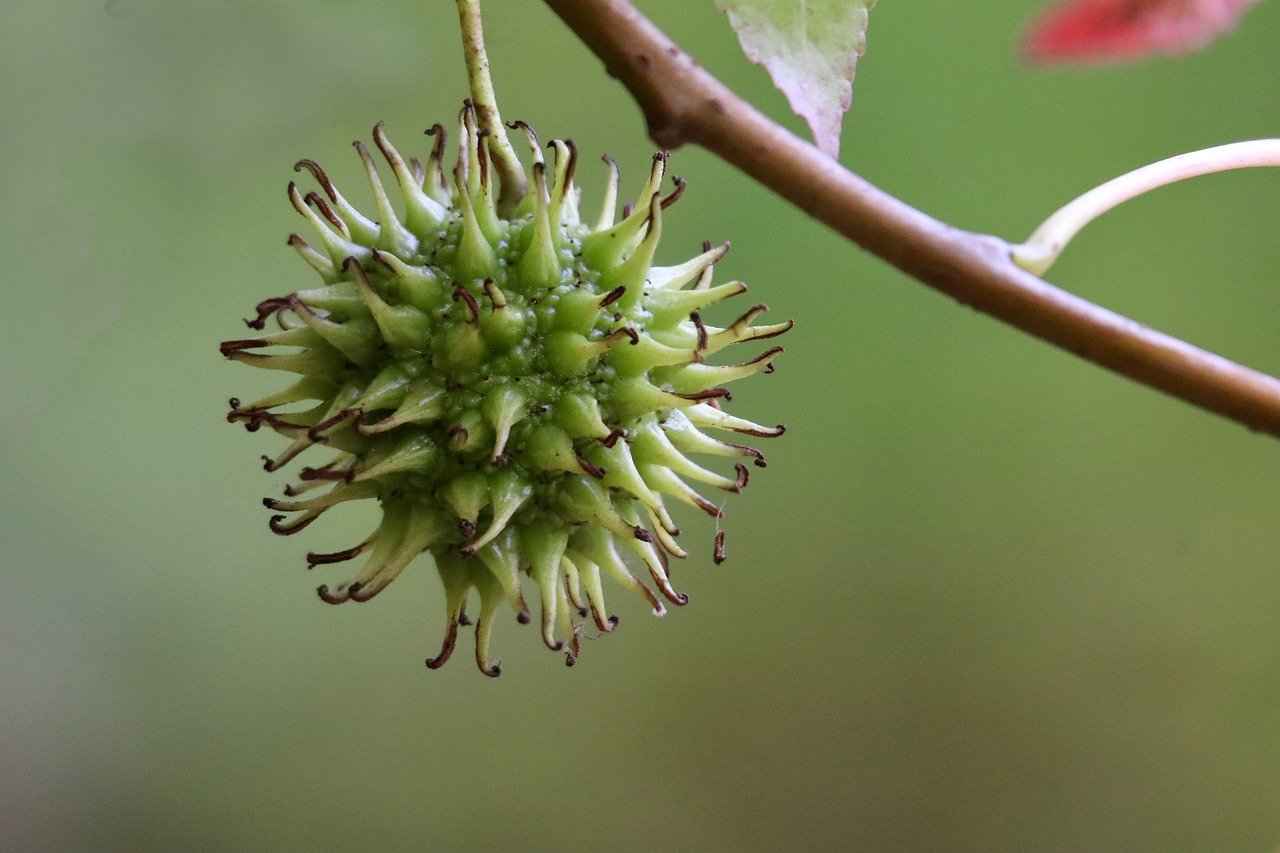
Why Choose Chia Seeds?
Chia seeds have gained immense popularity in recent years, and for good reason. These tiny seeds are not only versatile but are also a powerhouse of nutrients. Understanding why you should incorporate chia seeds into your diet can significantly enhance your overall health and well-being.
Chia seeds are a rich source of essential nutrients. Just a single ounce (about two tablespoons) contains:
- Fiber: Approximately 11 grams, which aids in digestion and promotes a feeling of fullness.
- Protein: About 4 grams, making them an excellent plant-based protein source.
- Omega-3 Fatty Acids: High in alpha-linolenic acid (ALA), which supports heart health.
- Antioxidants: Help combat oxidative stress and inflammation in the body.
- Minerals: Rich in calcium, magnesium, and phosphorus, essential for bone health.
Incorporating chia seeds into your diet can lead to numerous health benefits:
- Weight Management: The high fiber content helps you feel full longer, reducing overall calorie intake.
- Heart Health: Omega-3 fatty acids contribute to lowering cholesterol levels and improving heart function.
- Digestive Health: The soluble fiber in chia seeds promotes healthy digestion and regularity.
- Bone Health: The calcium and phosphorus in chia seeds support strong bones and teeth.
- Blood Sugar Control: Chia seeds can help stabilize blood sugar levels, making them a smart choice for those with diabetes.
Adding chia seeds to your meals is easy and can be done in various ways:
- Chia Pudding: Mix chia seeds with milk or a milk alternative and let them soak overnight for a nutritious breakfast or snack.
- Smoothies: Blend chia seeds into your favorite smoothie for an extra nutrient boost.
- Baking: Add chia seeds to your baked goods, such as muffins or bread, for added texture and nutrition.
- Salads: Sprinkle chia seeds over salads for a crunchy topping.
While chia seeds offer numerous benefits, it is essential to consume them in moderation. Overconsumption can lead to digestive issues due to their high fiber content. Additionally, it’s crucial to drink plenty of water when consuming chia seeds, especially when they are dry, as they can absorb liquid and expand in your stomach.
In conclusion, chia seeds are a nutrient-dense superfood that can enhance your diet in many ways. Their versatility allows for easy incorporation into various meals, making them a convenient addition to any health-conscious lifestyle. By understanding their health benefits and how to use them, you can appreciate the value of chia seeds in your daily nutrition.
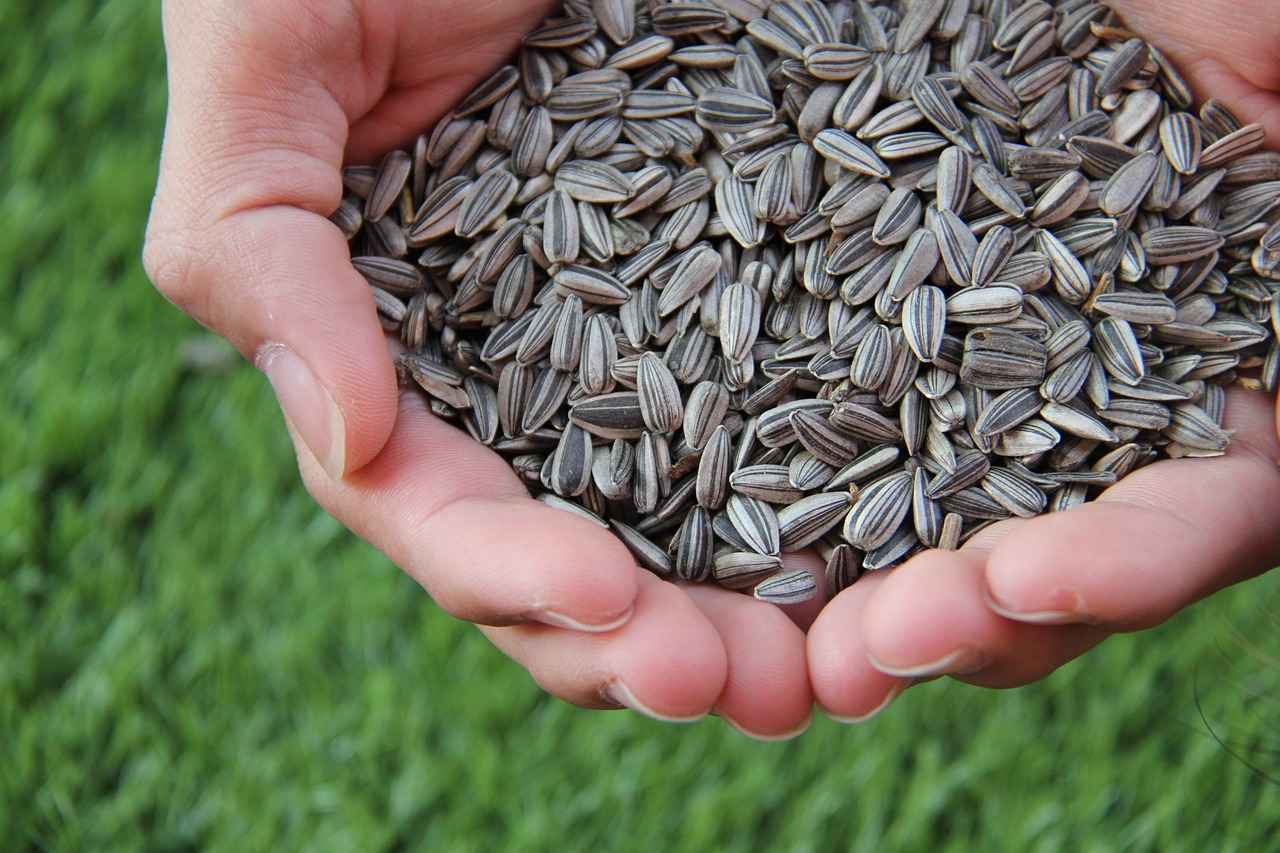
What Are the Best Online Retailers for Chia Seeds?
When it comes to purchasing chia seeds, the internet offers a plethora of options that cater to varying preferences and budgets. The convenience of online shopping allows consumers to browse a wide range of products from the comfort of their homes. In this section, we will delve into the best online retailers for chia seeds, highlighting their unique offerings and competitive pricing.
Shopping online for chia seeds provides several advantages. Firstly, it grants access to a vast selection of brands and types, including organic, non-GMO, and flavored varieties. Secondly, online retailers often provide customer reviews, which can be invaluable in making informed purchasing decisions. Lastly, the ability to compare prices across different platforms ensures you get the best deal available.
- Amazon: This giant of online retail is known for its extensive selection of chia seeds. With numerous brands available, customers can easily read reviews and ratings to find the best product for their needs. Amazon often offers competitive pricing and fast shipping options, making it a reliable choice for many shoppers.
- iHerb: Specializing in health products, iHerb offers a variety of chia seeds, including organic options. The website frequently features discounts and deals, making it an attractive choice for health-conscious consumers. Additionally, iHerb provides detailed product descriptions and customer reviews to aid in decision-making.
- Thrive Market: This membership-based online grocery store focuses on organic and natural products. Thrive Market offers chia seeds at discounted prices, and members can enjoy exclusive deals. Their commitment to sustainability and health makes them a popular choice among eco-conscious shoppers.
- Walmart: Known for its affordability, Walmart’s online store features a selection of chia seeds from various brands. Customers can take advantage of competitive pricing and the option for in-store pickup, making it a convenient choice for many.
- Health Food Websites: Websites like Vitacost and Swanson focus on health foods and supplements. They often carry a range of chia seed products, including unique blends and flavored options, appealing to consumers looking for something beyond the standard offerings.
When purchasing chia seeds online, consider the following factors:
- Quality: Look for seeds that are organic and non-GMO. Check for certifications on the product page.
- Packaging: Ensure that the seeds are packaged in airtight containers to maintain freshness.
- Customer Reviews: Read through customer feedback to gauge the quality and taste of the seeds.
- Price: Compare prices across different retailers to find the best deals, keeping an eye out for bulk purchasing options.
In conclusion, shopping online for chia seeds not only offers convenience but also a vast array of choices. By exploring reputable online retailers, consumers can find high-quality chia seeds that fit their dietary needs and preferences. Utilize the tips provided to make informed decisions and enjoy the numerous health benefits that chia seeds have to offer.
Amazon: A Reliable Option?
When it comes to purchasing chia seeds, one of the most popular and convenient options is Amazon. This online marketplace offers a vast selection of chia seeds from various brands, making it an excellent choice for consumers looking to explore different options. But what makes Amazon a reliable option for buying chia seeds? Let’s dive into the details.
Amazon provides a unique blend of convenience, variety, and customer feedback. With the ability to browse through numerous brands and types of chia seeds, shoppers can easily find what suits their dietary needs and preferences. Additionally, Amazon often features customer reviews and ratings, which can be invaluable in guiding your purchase decisions.
One of the standout features of shopping on Amazon is the extensive customer review system. By reading through reviews, potential buyers can gain insights into the quality and taste of different chia seeds. Look for products with a high number of positive reviews, as this typically indicates a reliable product. Additionally, pay attention to reviews that mention specific uses, such as baking or adding to smoothies, to see how others incorporate chia seeds into their diets.
Amazon hosts a multitude of brands offering chia seeds, from well-known names to niche organic producers. This variety allows consumers to compare prices, packaging sizes, and even nutritional information. Whether you prefer conventional or organic chia seeds, you’ll find options that cater to your dietary preferences. Some popular brands include:
- Nutiva – Known for its organic offerings.
- BetterBody Foods – Offers a range of chia seed products.
- Healthworks – Focuses on natural ingredients.
Another advantage of shopping on Amazon is the potential for competitive pricing. Frequent discounts, subscription options, and bulk buying can lead to significant savings. Keep an eye out for deals, especially during major shopping events like Prime Day or Black Friday. Signing up for Amazon Prime can also provide additional discounts and free shipping options, making it even more cost-effective to purchase chia seeds online.
With Amazon’s efficient delivery system, you can have chia seeds delivered right to your doorstep. This convenience is particularly beneficial for those who may not have local access to health food stores or specialty shops. Plus, the option for same-day or next-day delivery in certain areas means you won’t have to wait long to start enjoying your chia seeds.
While Amazon is a fantastic resource for purchasing chia seeds, there are a few potential drawbacks to consider. For instance, the vast selection can sometimes be overwhelming, and it may be challenging to determine which products are truly high-quality. It’s essential to do your research and read reviews carefully. Additionally, ensure that you are buying from reputable sellers to avoid counterfeit or low-quality products.
In summary, Amazon stands out as a reliable option for purchasing chia seeds due to its extensive selection, customer reviews, competitive pricing, and convenience. By leveraging these features, you can make informed decisions and find the best chia seeds to enhance your health and culinary adventures.
Health Food Websites: Specialized Choices
When it comes to sourcing high-quality chia seeds, health food websites have become a go-to option for many consumers. These platforms specialize in offering products that align with the values of health-conscious individuals, ensuring that every purchase contributes positively to their overall well-being.
Health food websites typically provide a range of organic and non-GMO chia seeds, catering specifically to those who prioritize quality in their diets. The appeal lies not only in the quality of the products but also in the transparency of sourcing. Many of these websites provide detailed information about the origins of their seeds, ensuring that customers can make informed decisions.
One of the significant advantages of shopping on health food websites is the variety of chia seed options available. Customers can choose from:
- Black Chia Seeds – Known for their slightly nuttier flavor.
- White Chia Seeds – Often perceived as more visually appealing in recipes.
- Organic Chia Seeds – Grown without synthetic pesticides or fertilizers.
- Flavored Chia Seeds – Infused with natural flavors for added taste.
When seeking out chia seeds, consider visiting well-known health food websites such as:
- Healthline – Offers a variety of chia seeds along with detailed nutritional information.
- Amazon – A vast selection of brands and customer reviews to guide your choices.
- iHerb – Known for its extensive range of organic health products.
- Vitacost – Specializes in health foods and supplements, often with competitive pricing.
Purchasing chia seeds from health food websites comes with numerous benefits:
- Quality Assurance: Many of these sites prioritize high-quality products, ensuring that what you buy is fresh and nutritious.
- Convenience: Ordering online allows for easy access to various brands and types of chia seeds without the need to visit multiple stores.
- Educational Resources: These websites often provide valuable information, including recipes and health tips, to help you incorporate chia seeds into your diet effectively.
Before making a purchase, it’s essential to review the shipping policies of the health food website. Many sites offer free shipping on orders over a certain amount, which can make buying in bulk more economical. Additionally, understanding the return policy is crucial in case the product does not meet your expectations.
Another advantage of shopping on health food websites is the availability of customer reviews and ratings. Reading about other customers’ experiences can provide insights into the quality and taste of the chia seeds, helping you make a more informed decision.
In summary, health food websites offer a specialized and convenient option for purchasing chia seeds. With a focus on quality and a range of choices, these platforms cater to the needs of health-conscious consumers. By considering reputable sites and understanding the benefits of shopping online, you can enhance your culinary repertoire while prioritizing your health.

Local Grocery Stores: Where to Find Chia Seeds?
When it comes to incorporating chia seeds into your diet, local grocery stores can be a convenient and accessible option. These stores often provide a variety of choices, making it easier for you to find the right seeds that suit your needs. In this section, we will explore the types of stores that typically carry chia seeds and how to ensure you are purchasing the best quality.
Understanding where to look for chia seeds can save you time and effort. Here are the main types of local grocery stores where you can find them:
- Chain Supermarkets: Major supermarket chains like Walmart, Kroger, and Safeway often stock chia seeds in their health food or organic sections. These stores typically carry popular brands which can be a good starting point for new buyers.
- Health Food Stores: Independent health food stores, such as Whole Foods or local co-ops, often have a wider selection of chia seeds, including organic and non-GMO options. These stores cater to health-conscious consumers and may provide products with higher quality standards.
- Specialty Stores: Stores that focus on specific dietary needs, such as gluten-free or vegan products, may also carry chia seeds. These shops often provide unique brands that are not available in larger supermarkets.
Finding high-quality chia seeds is essential for maximizing their health benefits. Here are some tips:
- Check the Packaging: Look for packaging that is sealed and opaque to protect the seeds from light and moisture. This helps maintain their freshness.
- Read the Labels: Opt for chia seeds that are labeled as organic or non-GMO. These certifications can indicate higher quality and better farming practices.
- Examine the Color: Chia seeds can be either black or white. Both colors have similar nutritional profiles, but make sure the seeds are uniform in color and free from debris.
Finding the best price for chia seeds can make a significant difference, especially if you plan to incorporate them into your daily diet. Here are some strategies:
- Compare Prices: Don’t hesitate to check prices at different stores. Chain supermarkets may offer competitive prices, while health food stores might have sales on organic options.
- Look for Discounts: Keep an eye out for special promotions, loyalty programs, or discounts on bulk purchases, especially at health food stores.
- Ask for Recommendations: Engaging with staff at local grocery stores can provide insights into which brands are popular and high-quality.
In summary, local grocery stores provide an excellent option for purchasing chia seeds. By exploring different types of stores, identifying quality products, and seeking the best deals, you can easily incorporate these nutritious seeds into your diet. Whether you choose to shop at a large chain supermarket or a specialized health food store, the key is to remain informed and selective about the products you purchase.
Chain Supermarkets: A Common Choice
Chain supermarkets are often the go-to destination for many shoppers seeking chia seeds due to their widespread availability and convenience. These stores typically feature a dedicated health food section where you can find a variety of chia seed brands. However, not all chia seeds are created equal, so knowing how to identify quality options is essential for making the best choice.
When browsing the aisles of your local supermarket, consider the following factors to ensure you select high-quality chia seeds:
- Packaging: Opt for seeds in opaque or dark packaging to protect them from light, which can degrade their quality.
- Expiration Date: Always check the expiration date to ensure freshness. Chia seeds can last a long time, but buying within the best-by date guarantees optimal flavor and nutrition.
- Ingredient List: Look for chia seeds that are 100% pure with no added fillers or preservatives.
- Organic Certification: If possible, choose organic chia seeds, as they are grown without harmful pesticides and fertilizers.
Several reputable brands are known for their high-quality chia seeds. Here are a few that you might find in chain supermarkets:
- Nutiva: Known for its organic offerings, Nutiva provides chia seeds that are rich in nutrients and sustainably sourced.
- Healthworks: This brand focuses on superfoods and offers high-quality chia seeds that are non-GMO.
- Terrasoul Superfoods: With a commitment to purity, Terrasoul provides raw, organic chia seeds that are well-reviewed by health enthusiasts.
Once you have selected your chia seeds, you might wonder how to incorporate them into your meals. Here are some easy ideas:
- Chia Pudding: Mix chia seeds with your choice of milk or yogurt, let them soak overnight, and enjoy a nutritious breakfast.
- Smoothies: Add a tablespoon of chia seeds to your favorite smoothie for an extra boost of fiber and omega-3 fatty acids.
- Baking: Incorporate chia seeds into muffins or bread for added texture and nutrition.
Chain supermarkets offer several benefits when it comes to purchasing chia seeds:
- Convenience: With multiple locations, chain supermarkets are easily accessible, making it simple to pick up chia seeds during your regular grocery shopping.
- Competitive Pricing: These stores often have sales and promotions, allowing you to purchase chia seeds at a lower cost compared to specialty health food stores.
- Variety: Chain supermarkets typically stock a range of brands and types of chia seeds, giving you options to choose from based on your preferences.
In conclusion, shopping at chain supermarkets for chia seeds can be a practical choice for many consumers. By paying attention to packaging, expiration dates, and selecting reputable brands, you can ensure that you are purchasing high-quality chia seeds that will enhance your diet. Whether you are a seasoned chia seed user or a newcomer curious about their health benefits, these tips will help you make informed decisions during your next grocery run.
Health Food Stores: A Treasure Trove
When it comes to sourcing chia seeds, local health food stores are often a treasure trove of options. These specialized retailers not only offer a diverse selection of chia seeds, including organic varieties, but they also provide numerous benefits that enhance your shopping experience.
Shopping at local health food stores can be a rewarding experience for several reasons:
- Quality Assurance: Health food stores typically prioritize quality and often source their products from reputable suppliers. This means you are more likely to find fresh and high-quality chia seeds.
- Organic Options: Many health food stores offer a range of organic chia seeds, which are grown without synthetic pesticides and fertilizers, making them a healthier choice.
- Knowledgeable Staff: The staff at these stores are often well-versed in the products they sell. They can provide valuable insights and recommendations based on your dietary needs.
When shopping for chia seeds, it’s important to consider the following:
- Packaging: Look for seeds that are packaged in airtight containers to ensure freshness. Avoid products with damaged packaging.
- Labels: Check for certifications such as USDA Organic or Non-GMO to ensure you are getting high-quality seeds.
- Expiration Dates: Always check the expiration date to ensure you are purchasing fresh seeds.
Chia seeds are incredibly versatile and can be easily incorporated into your diet. Here are some ideas:
- Chia Pudding: Mix chia seeds with your choice of milk and let them soak overnight for a nutritious breakfast.
- Smoothies: Add a tablespoon of chia seeds to your smoothies for an extra boost of fiber and omega-3 fatty acids.
- Baking: Incorporate chia seeds into your baking recipes for added texture and nutrition.
By choosing to shop at local health food stores, you are not only investing in your health but also supporting your community. These stores often carry products from local farmers and producers, fostering a sense of community and sustainability.
In conclusion, local health food stores are an excellent choice for purchasing chia seeds. With their focus on quality, knowledgeable staff, and a variety of options, these retailers can enhance your shopping experience and contribute positively to your health journey.
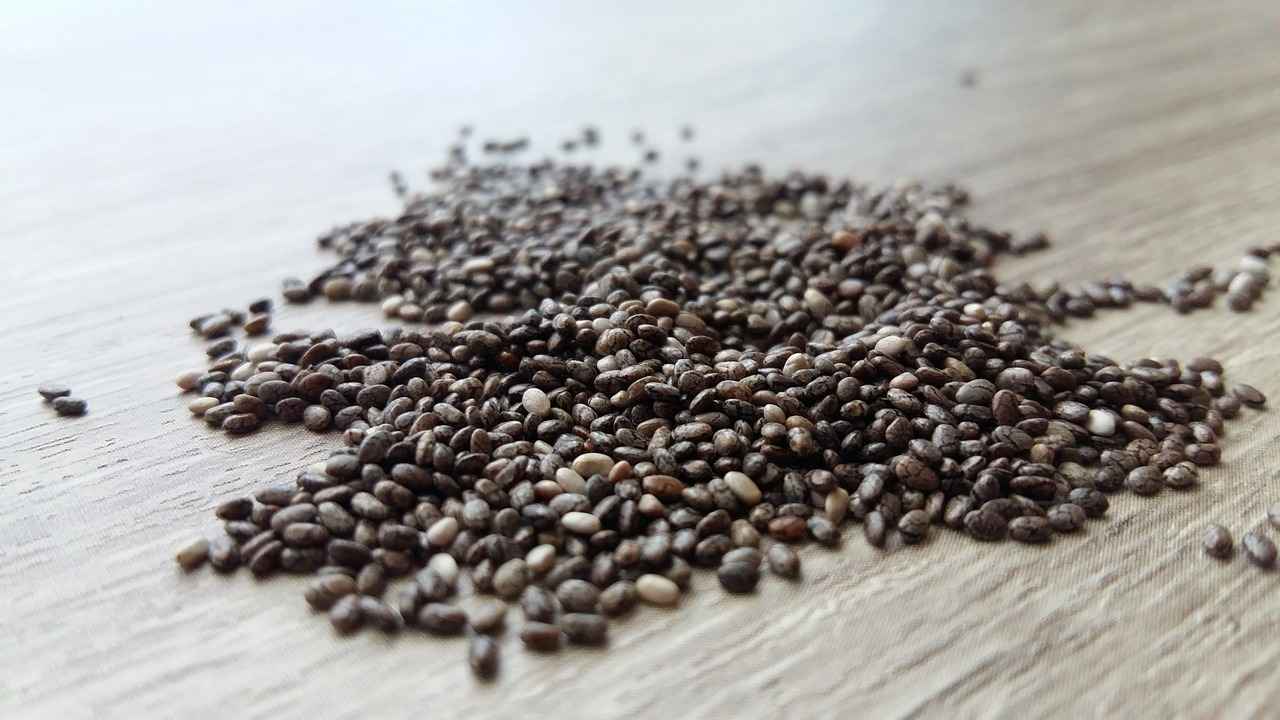
Farmers’ Markets: Fresh and Local Chia Seeds?
Farmers’ markets have become increasingly popular for those seeking fresh and local produce, and they can also be an excellent source for high-quality chia seeds. These markets not only provide a variety of organic options but also allow consumers to connect directly with producers, fostering a sense of community and trust. In this article, we will explore how to find local vendors and the numerous benefits of purchasing chia seeds directly from farmers.
Buying chia seeds at farmers’ markets offers several advantages:
- Freshness: Chia seeds sold at farmers’ markets are often fresher than those found in grocery stores, as they are sourced directly from local farms.
- Quality Assurance: By purchasing directly from farmers, you can inquire about their growing practices and ensure the seeds are organic and non-GMO.
- Supporting Local Economy: Shopping at farmers’ markets helps support local farmers and contributes to the community’s economy.
- Variety: Many farmers offer unique varieties of chia seeds that may not be available in larger retail stores, allowing you to experiment with different types.
Finding local farmers’ markets is easier than ever. Here are some effective methods:
- Online Directories: Websites like LocalHarvest provide comprehensive listings of farmers’ markets across the United States.
- Social Media: Many farmers’ markets promote their events on social media platforms. Following local food groups can keep you updated on market schedules.
- Community Boards: Check community centers, libraries, or local cafes for flyers and announcements about upcoming farmers’ markets.
When purchasing chia seeds at farmers’ markets, consider the following:
- Packaging: Ensure that the seeds are stored in airtight containers to maintain freshness.
- Labeling: Look for labels that indicate whether the seeds are organic or sustainably sourced.
- Samples: Don’t hesitate to ask vendors for samples before making a purchase. Tasting the product can help you decide on quality.
Buying chia seeds directly from producers offers unique advantages:
- Personal Connection: Engaging with farmers allows you to learn more about their practices, fostering a deeper appreciation for your food.
- Better Prices: Farmers often offer competitive pricing compared to retail stores, especially for bulk purchases.
- Seasonal Availability: You may discover seasonal varieties of chia seeds that are fresher and tastier.
In conclusion, farmers’ markets present a fantastic opportunity to purchase fresh and local chia seeds. By supporting local farmers, you not only enhance your diet with high-quality seeds but also contribute to your community’s economy. Make it a point to visit your local farmers’ market and explore the diverse offerings available.
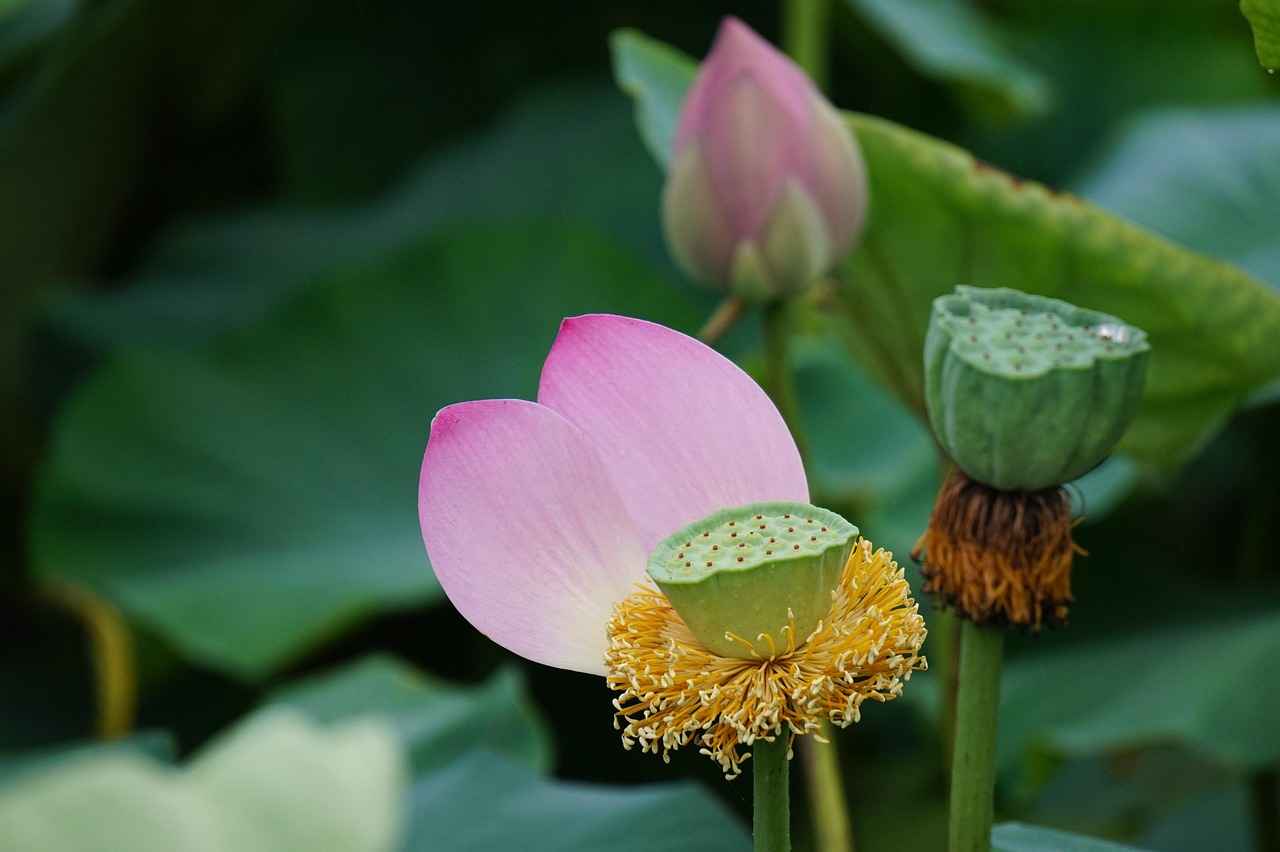
Buying in Bulk: Is It Worth It?
When considering the purchase of chia seeds, many consumers are faced with the decision of whether to buy in bulk. This choice can lead to significant savings, but it also comes with its own set of advantages and drawbacks.
- Cost Savings: One of the most compelling reasons to buy chia seeds in bulk is the potential for cost savings. Retailers often provide discounts for larger quantities, which can significantly reduce the price per ounce.
- Convenience: Purchasing in bulk means fewer trips to the store, allowing you to stock up on your favorite superfood. This is especially beneficial for those who incorporate chia seeds into their daily diet.
- Less Packaging Waste: Buying in bulk can also contribute to environmental sustainability. By minimizing packaging, you help reduce waste, making it a more eco-friendly option.
- Storage Issues: Chia seeds, while shelf-stable, require proper storage to maintain freshness. Buying in bulk means you need adequate space and suitable containers to keep your seeds from spoiling.
- Risk of Overbuying: If you’re unsure how quickly you will use a large quantity, there’s a risk of overbuying. This could lead to waste if the seeds aren’t consumed before their optimal freshness diminishes.
- Quality Concerns: Not all bulk suppliers maintain the same quality standards. It’s essential to research and choose reputable sources to ensure you are getting high-quality chia seeds.
Several options are available for purchasing chia seeds in bulk:
- Wholesale Clubs: Membership-based stores like Costco or Sam’s Club often have competitive prices on bulk chia seeds. These clubs can be a great way to save money if you frequently use chia seeds.
- Online Bulk Suppliers: Websites such as Amazon or specialty health food sites often offer bulk buying options. Look for suppliers with good reviews and transparent sourcing practices.
- Local Co-ops and Health Food Stores: Many local co-ops sell bulk chia seeds. This not only supports local businesses but also allows you to ask questions about the product’s sourcing and quality.
When buying chia seeds in bulk, consider the following tips:
- Check for Certifications: Look for organic and non-GMO certifications to ensure you are purchasing high-quality seeds.
- Inspect Packaging: Ensure that the packaging is intact and resealable, which helps maintain freshness.
- Read Reviews: Customer reviews can provide insights into the quality and taste of the chia seeds from different suppliers.
In conclusion, buying chia seeds in bulk can offer substantial benefits, including cost savings and convenience. However, it’s essential to weigh these advantages against potential drawbacks such as storage and quality concerns. By making informed choices, you can enjoy the nutritional benefits of chia seeds while maximizing your savings.
Wholesale Clubs: Cost-Effective Options
Wholesale clubs like Costco and Sam’s Club have become increasingly popular for savvy shoppers looking to save money on bulk purchases. These membership-based retailers often provide significant discounts on a variety of products, including chia seeds. But how can you maximize your membership to get the best deals on these nutritious seeds?
Wholesale clubs offer several advantages for consumers. One of the primary benefits is the reduced prices on bulk items. By purchasing chia seeds in larger quantities, you not only save money but also ensure you have a steady supply of this superfood. Additionally, many wholesale clubs provide high-quality products that are often organic or non-GMO, appealing to health-conscious shoppers.
- Research Prices: Before heading to the store, check online for current prices of chia seeds at your local wholesale club. This will help you determine if the membership fee is worth the savings.
- Plan Your Purchases: Create a shopping list that includes chia seeds and other items you need. This will help you avoid impulse buys and stick to your budget.
- Take Advantage of Promotions: Keep an eye out for special promotions or discounts on chia seeds. Many wholesale clubs offer seasonal sales that can lead to even greater savings.
- Share with Friends: If you find a great deal on chia seeds but don’t want to buy in bulk alone, consider teaming up with friends or family. This way, you can split the cost and share the seeds.
When purchasing chia seeds from wholesale clubs, it’s essential to consider the quality of the seeds. Look for packaging that indicates the seeds are organic or non-GMO. Additionally, check the expiration date to ensure freshness. High-quality chia seeds should have a rich, nutty aroma and a firm texture.
While wholesale clubs often provide lower prices, it’s wise to compare these with prices from other retailers. Online marketplaces like Amazon and health food websites may also offer competitive pricing, especially during sales. Make use of price comparison tools to find the best deals available.
Your wholesale club membership can be a valuable resource for more than just chia seeds. Many clubs offer a wide range of health foods, snacks, and kitchen staples at reduced prices. By purchasing these items in bulk, you can further enhance your savings and ensure you always have healthy options on hand.
In conclusion, wholesale clubs like Costco and Sam’s Club offer a fantastic opportunity to save money on chia seeds and other health products. By understanding how to leverage your membership, you can enjoy the benefits of bulk buying while maintaining a healthy diet. With a little planning and research, you can make the most of these cost-effective shopping options.
Online Bulk Suppliers: Convenience and Savings
In today’s fast-paced world, online bulk suppliers have emerged as a popular choice for purchasing chia seeds. With the growing demand for this superfood, many consumers are looking for ways to save money while ensuring they get high-quality products. This section delves into the benefits of buying chia seeds in bulk online and offers tips on how to select reputable suppliers.
Buying chia seeds in bulk can lead to significant savings. When you purchase larger quantities, suppliers often offer lower prices per unit, which can be a great way to stock up on this nutrient-rich food. Additionally, bulk purchases reduce packaging waste, making it an eco-friendly option.
When searching for online bulk suppliers, it’s essential to choose reputable vendors to ensure quality. Here are some tips to help you make informed decisions:
- Research Supplier Reviews: Look for customer feedback and ratings on platforms like Trustpilot or Google Reviews. Positive reviews can indicate a reliable supplier.
- Check Certifications: Ensure the supplier has relevant certifications, such as organic or non-GMO, to guarantee the quality of their chia seeds.
- Compare Prices: Don’t settle for the first option you find. Compare prices from different suppliers to ensure you’re getting the best deal.
- Look for Bulk Discounts: Many suppliers offer additional discounts for larger orders. Be sure to inquire about these options.
Not all chia seeds are created equal. When purchasing in bulk, consider the following factors:
- Seed Variety: Black and white chia seeds have similar nutritional profiles but may differ in taste and appearance. Choose based on your preference.
- Organic vs. Conventional: Organic chia seeds are often free from pesticides and chemicals. If health is a priority, opt for organic options.
- Packaging: Ensure the chia seeds are packaged in a way that preserves freshness, such as airtight bags or containers.
Shopping online for bulk chia seeds offers several advantages:
- Convenience: You can browse a wide variety of suppliers and products from the comfort of your home.
- Time-Saving: Online shopping eliminates the need to travel to multiple stores, saving you time and effort.
- Access to Information: Most online suppliers provide detailed product descriptions, nutritional information, and customer reviews to help you make informed choices.
While buying chia seeds in bulk online has many benefits, there are also potential drawbacks:
- Shipping Costs: Depending on the supplier, shipping fees can add to the overall cost. Look for suppliers with free shipping options for bulk orders.
- Quality Assurance: Without seeing the product in person, it can be challenging to assess quality. Always choose suppliers with a good return policy.
In conclusion, purchasing chia seeds in bulk from reputable online suppliers can be a cost-effective and convenient way to enhance your diet. By following the tips outlined above, you can ensure that you receive high-quality chia seeds that meet your health needs and preferences.
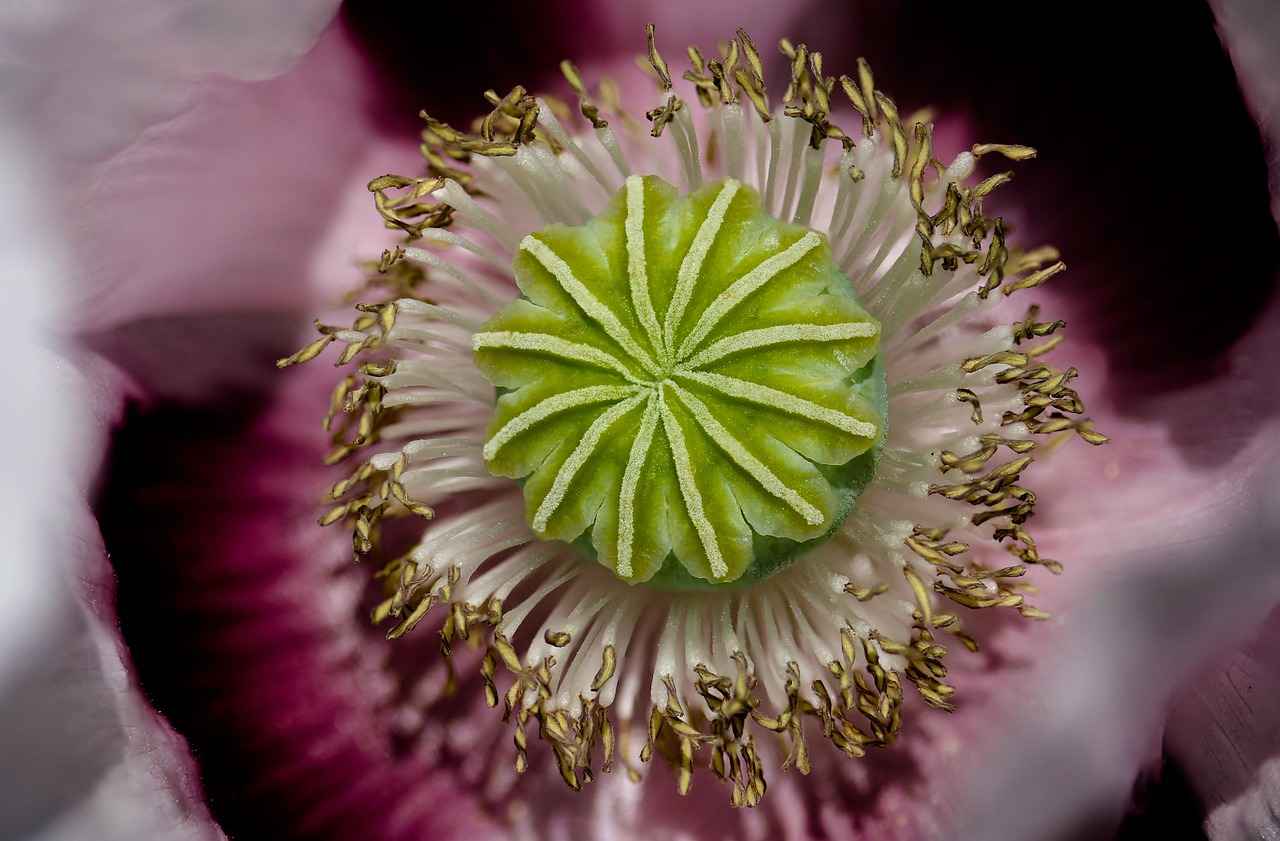
Choosing the Right Type of Chia Seeds
When it comes to chia seeds, not all varieties are created equal. Understanding the differences between them is essential for making informed choices that align with your health goals and culinary preferences. This guide will delve into the various types of chia seeds available and offer tips on how to select the best ones for your needs.
Chia seeds primarily come in two colors: black and white. While both types share similar nutritional profiles, they can vary in taste and appearance, which may influence your decision on which to purchase.
- Black Chia Seeds: These are the most commonly available chia seeds. They are rich in omega-3 fatty acids, fiber, and protein. Many people prefer black chia seeds for their earthy flavor, which works well in both sweet and savory dishes.
- White Chia Seeds: Slightly less common, white chia seeds are often perceived as more aesthetically pleasing. They have a milder flavor and can blend seamlessly into recipes, making them an excellent choice for those who are cautious about altering the taste of their meals.
Another significant distinction lies between organic and conventional chia seeds. Organic chia seeds are cultivated without the use of synthetic pesticides or fertilizers, making them a healthier option for those concerned about chemical exposure.
- Benefits of Organic Chia Seeds: Choosing organic can enhance your overall health by reducing your intake of harmful chemicals. Additionally, organic farming practices promote soil health and biodiversity.
- Conventional Chia Seeds: While typically less expensive, conventional chia seeds may contain residues from farming chemicals. However, they still offer significant nutritional benefits, making them a viable option for budget-conscious consumers.
When selecting chia seeds, consider the following factors:
- Quality and Source: Look for seeds that are sourced from reputable suppliers. Check for certifications like organic or non-GMO, which can indicate higher quality.
- Packaging: Choose seeds that are packaged in airtight containers to maintain freshness. Avoid seeds sold in bulk bins, as they may be exposed to light and moisture.
- Reviews and Recommendations: Customer reviews can provide valuable insights into the quality of chia seeds. Consider seeking recommendations from trusted sources or health food blogs.
Regardless of the variety you choose, chia seeds offer numerous health benefits:
- Rich in Nutrients: Chia seeds are an excellent source of omega-3 fatty acids, fiber, protein, and various essential minerals.
- Heart Health: The high omega-3 content can support cardiovascular health by reducing inflammation and improving cholesterol levels.
- Digestive Health: The soluble fiber in chia seeds aids digestion and promotes a healthy gut.
In conclusion, understanding the differences between the various types of chia seeds can empower you to make better choices for your health and wellness. Whether you opt for black or white, organic or conventional, the key is to select high-quality seeds that align with your dietary needs and preferences.
Black vs. White Chia Seeds: What’s the Difference?
When it comes to chia seeds, many people find themselves wondering about the differences between black and white varieties. While both types share a similar nutritional profile, they differ significantly in appearance and may cater to different preferences. In this section, we will explore these differences and help you determine which type might be more suitable for your needs.
Black chia seeds are the most common variety found in stores. They have a rich, dark color that can add a striking contrast to various dishes. Nutritionally, they are packed with omega-3 fatty acids, fiber, protein, and essential minerals like calcium and magnesium.
White chia seeds are less commonly found but are equally nutritious. Their pale hue can make them a preferred choice for certain recipes where a subtle appearance is desired. Like their black counterparts, they also offer a wealth of health benefits and contain the same essential nutrients.
Despite the differences in color, there is no significant difference in the nutritional value of black and white chia seeds. Both varieties provide similar amounts of fiber, protein, and healthy fats. This makes them equally beneficial for those looking to enhance their diet.
Your choice between black and white chia seeds may come down to personal preference. If you enjoy the aesthetic of dark seeds in your dishes, black chia seeds might be the way to go. On the other hand, if you prefer a more neutral appearance, white chia seeds could be better suited for your recipes.
In terms of flavor, both black and white chia seeds are mild and nutty. They can easily blend into smoothies, puddings, or baked goods without altering the overall taste of your dish. This versatility makes them a popular choice for many culinary applications.
Both types of chia seeds can be found in health food stores, local supermarkets, and online retailers. When shopping, look for organic options to ensure you’re getting the highest quality seeds. Reading customer reviews can also guide you in selecting reputable brands.
- Chia Pudding: Mix chia seeds with your choice of milk and let them sit overnight to create a delicious pudding.
- Smoothies: Add a tablespoon of chia seeds to your favorite smoothie for an extra nutritional boost.
- Baking: Incorporate chia seeds into baked goods like muffins or bread for added texture and nutrition.
Ultimately, whether you choose black or white chia seeds, you are making a healthy choice. Both varieties offer a plethora of nutritional benefits and can be easily integrated into your diet. Explore the options available to you and enjoy the versatility that chia seeds bring to your meals!
Organic vs. Conventional Chia Seeds: Which to Choose?
When it comes to chia seeds, the choice between organic and conventional can significantly affect your health and wellness. As these tiny seeds gain popularity as a superfood, understanding the implications of each option is crucial for making informed dietary choices.
Organic chia seeds are cultivated without the use of synthetic pesticides, herbicides, or fertilizers. This method of farming not only promotes environmental sustainability but also ensures that the seeds are free from harmful chemicals. By choosing organic, you are opting for a product that is grown in harmony with nature, which can lead to a more nutritious seed.
- Higher Nutritional Value: Organic chia seeds are often richer in nutrients, including omega-3 fatty acids, fiber, and antioxidants.
- Better for the Environment: Organic farming practices promote biodiversity and reduce pollution.
- Safer for Consumption: Without harmful chemicals, organic chia seeds are a safer choice for you and your family.
Conventional chia seeds, on the other hand, are typically grown using chemical fertilizers and pesticides. While they may be more affordable, they can carry residues from these substances, which some consumers prefer to avoid.
- Chemical Residues: Conventional seeds may contain traces of pesticides, which can pose health risks over time.
- Environmental Impact: The farming practices associated with conventional seeds can contribute to soil degradation and water pollution.
When deciding between organic and conventional chia seeds, consider the following factors:
- Your Health Goals: If you prioritize health and wellness, organic chia seeds may be the better choice.
- Budget: While organic options can be more expensive, many find the investment worthwhile for their health benefits.
- Availability: Assess local stores or online retailers for the best options that fit your needs.
Ultimately, the choice between organic and conventional chia seeds should align with your health priorities and values. While organic seeds offer numerous benefits, conventional seeds can still provide nutritional value. By understanding the differences and considering your personal circumstances, you can make an informed decision that enhances your diet.

How to Store Chia Seeds for Maximum Freshness?
Chia seeds are a powerhouse of nutrition, but to fully benefit from their health advantages, proper storage is essential. When stored correctly, these tiny seeds can retain their freshness, flavor, and nutritional value for months. This guide will explore the best practices for storing chia seeds effectively.
Chia seeds are rich in omega-3 fatty acids, fiber, and protein, making them a popular choice for health enthusiasts. However, exposure to air, moisture, and light can lead to rancidity and nutrient loss. Understanding how to store chia seeds properly can ensure they remain a valuable addition to your diet.
To keep chia seeds fresh, it’s important to consider the temperature and light exposure. The ideal environment for storing chia seeds is a cool, dark place. Here are some key points:
- Temperature: Store chia seeds in a temperature-controlled area, ideally between 50°F and 70°F (10°C to 21°C).
- Light: Keep them away from direct sunlight, which can degrade their quality over time.
Another crucial aspect of chia seed storage is the type of container used. Airtight containers are vital for maintaining freshness. Consider the following:
- Glass Jars: Glass containers with tight-sealing lids are excellent for protecting chia seeds from air and moisture.
- Plastic Containers: Choose BPA-free plastic containers that seal tightly to prevent air exposure.
- Vacuum Sealing: For long-term storage, vacuum sealing is a great option to eliminate air completely.
While chia seeds can be stored at room temperature, refrigeration can extend their shelf life. If you live in a warm climate or plan to store them for an extended period, consider these tips:
- Store chia seeds in the refrigerator in an airtight container to prevent moisture absorption.
- Label the container with the date of purchase to keep track of freshness.
When stored properly, chia seeds can last up to two years without losing their quality. However, it’s essential to check for signs of spoilage, such as an off smell or changes in texture. Consuming them within six months of opening the package ensures you enjoy their optimal nutritional benefits.
If you’re looking to store chia seeds for an even longer duration, freezing is an option. Here’s how to do it effectively:
- Place chia seeds in a freezer-safe airtight container.
- Label the container with the date and type of seeds.
- Thaw only the amount you need to prevent condensation from affecting the remaining seeds.
By following these best practices for storing chia seeds, you can ensure that they remain nutritious and flavorful. Incorporating these tiny seeds into your diet will provide you with an array of health benefits, making proper storage an essential consideration for any health-conscious individual.
Ideal Storage Conditions: Temperature and Light
When it comes to maintaining the freshness and nutritional value of chia seeds, understanding the ideal storage conditions is essential. These tiny seeds, known for their numerous health benefits, can spoil if not stored properly. This section delves into the best practices for keeping chia seeds in optimal condition, focusing on temperature and light exposure.
Chia seeds thrive in cool, dry environments. The ideal temperature for storage is between 60°F to 70°F (15°C to 21°C). Storing them at temperatures higher than this can accelerate the degradation of their oils, leading to rancidity. If you live in a particularly warm climate, consider keeping your chia seeds in the refrigerator to prolong their shelf life.
Light can significantly impact the quality of chia seeds. Exposure to direct sunlight can lead to oxidation, which diminishes their nutritional value. To protect your seeds:
- Store them in a dark, cool place, such as a pantry or cupboard.
- Use opaque containers to block out light.
- Avoid clear glass jars that allow light penetration.
Humidity levels also play a critical role in the storage of chia seeds. High humidity can cause the seeds to clump together and encourage mold growth. To combat this:
- Keep chia seeds in a dry environment.
- Use silica gel packets in storage containers to absorb excess moisture.
Using the right container is vital for maintaining the quality of chia seeds. Here are some recommended options:
- Airtight containers: Glass or BPA-free plastic containers with tight seals are ideal.
- Vacuum-sealed bags: These can extend the shelf life by eliminating air exposure.
- Opaque jars: As mentioned earlier, these help protect seeds from light damage.
When stored under optimal conditions, chia seeds can last for up to two years. However, it’s always advisable to check for any signs of spoilage, such as an off smell or discoloration, before use. If stored in a refrigerator, their shelf life can be extended even further.
In conclusion, by understanding and implementing the best storage practices for chia seeds, you can ensure they remain fresh and nutritious for as long as possible. Proper temperature control, minimal light exposure, and the right type of containers are key factors in achieving longevity for these powerful seeds.
Using Airtight Containers: Why It Matters
When it comes to maintaining the freshness and quality of chia seeds, proper storage is essential. These tiny seeds are packed with nutrients and can significantly enhance your health when incorporated into your diet. However, exposure to air, moisture, and light can lead to spoilage, diminishing their nutritional value. This is where airtight containers come into play, serving as a crucial element in the long-term storage of chia seeds.
Airtight containers are designed to create a sealed environment that prevents air and moisture from entering. This is particularly important for chia seeds, which can absorb moisture and become clumpy or spoil if not stored correctly. Here are several reasons why using airtight containers is a smart choice:
- Prevents Oxidation: Exposure to air can lead to oxidation, which can spoil the seeds and reduce their nutritional benefits.
- Maintains Freshness: Airtight containers help in keeping the seeds fresh for a longer time, preserving their flavor and texture.
- Protection from Pests: Sealing chia seeds in airtight containers can protect them from insects and other pests that might compromise their quality.
- Humidity Control: These containers can help regulate humidity levels, preventing the seeds from absorbing moisture that can lead to mold growth.
When selecting an airtight container for your chia seeds, consider the following types:
- Glass Jars: Glass containers are excellent for storing chia seeds as they do not retain odors and are easy to clean. Look for jars with a tight-sealing lid.
- Plastic Containers: BPA-free plastic containers can be lightweight and convenient. Ensure they have a secure lid to maintain an airtight seal.
- Vacuum-Sealed Bags: If you’re buying in bulk, vacuum-sealed bags can be a space-saving option that keeps chia seeds fresh for extended periods.
- Metal Tins: Metal tins with airtight seals can also be effective, especially if they are opaque to protect seeds from light exposure.
In addition to using airtight containers, here are some tips for optimal storage:
- Keep in a Cool, Dark Place: Store your airtight container in a pantry or cupboard away from direct sunlight and heat sources.
- Label Your Containers: If you have multiple containers, labeling them with the purchase date can help you keep track of their freshness.
- Avoid Frequent Opening: Minimize the number of times you open the container to reduce exposure to air and humidity.
Yes, chia seeds can be frozen for long-term storage. Using airtight containers or freezer bags can help preserve their quality. When you’re ready to use them, simply thaw them at room temperature. This method is particularly useful if you buy in bulk and want to ensure they remain fresh.
In summary, using airtight containers is vital for preserving the quality of chia seeds. By preventing exposure to air, moisture, and light, you can maintain their nutritional benefits and enhance your culinary experiences. Choose the right type of container, store them properly, and enjoy the numerous health benefits that chia seeds offer.
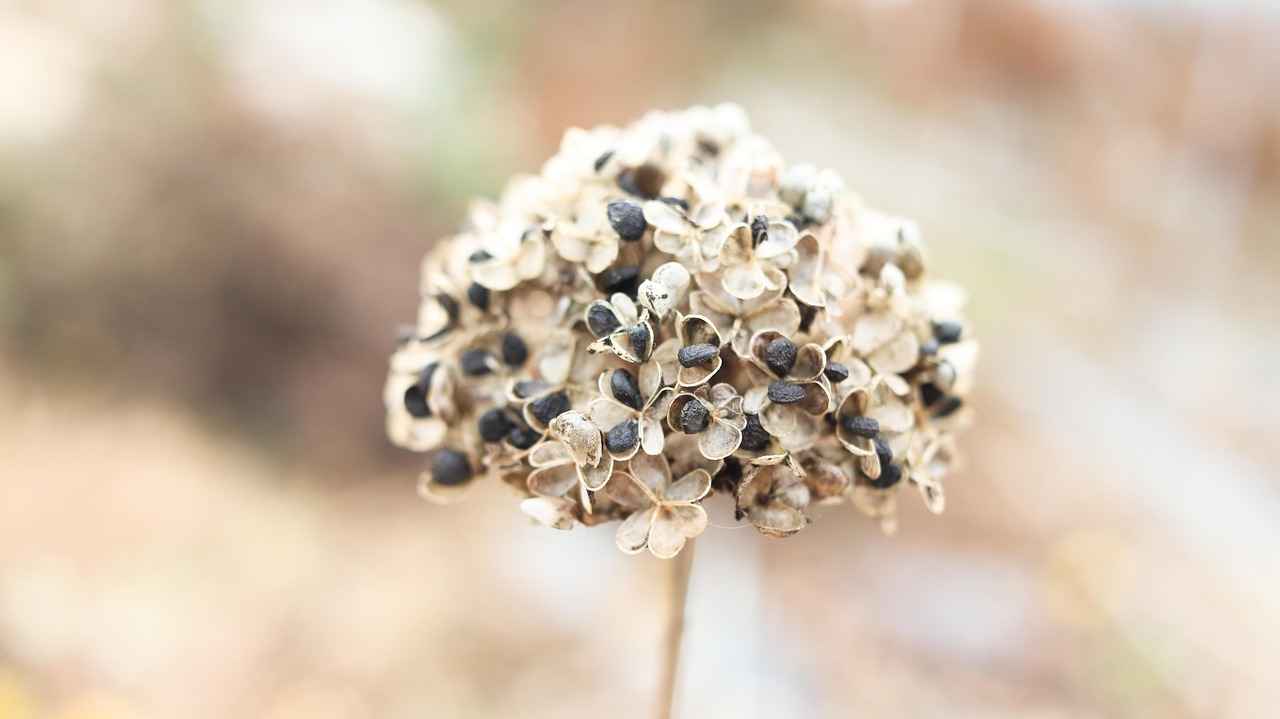
What Recipes Can You Make with Chia Seeds?
Chia seeds are not just a trendy superfood; they are incredibly versatile ingredients that can elevate a variety of dishes. Whether you’re looking for a nutritious breakfast, a satisfying snack, or a unique addition to your meals, chia seeds can play a significant role. Below are some creative and delicious recipes to help you maximize the nutritional benefits of chia seeds in your diet.
Chia pudding is one of the most popular ways to enjoy chia seeds. It’s easy to prepare and can be customized to suit your taste preferences. To make a basic chia pudding, follow these simple steps:
- Ingredients: 1/4 cup chia seeds, 1 cup almond milk (or any milk of your choice), sweetener (like honey or maple syrup), and toppings (fruits, nuts, or granola).
- Instructions: Combine chia seeds and milk in a bowl. Stir well to prevent clumping. Add your preferred sweetener and mix again. Cover and refrigerate for at least 2 hours or overnight. Before serving, top with fresh fruits or nuts for added flavor and texture.
Adding chia seeds to your smoothies is an excellent way to boost their nutritional value. They blend seamlessly and provide a satisfying texture. Here’s how to do it:
- Choose Your Base: Start with your favorite fruits, vegetables, and liquid base (like water, coconut water, or juice).
- Mix and Match: Add 1-2 tablespoons of chia seeds to your blender along with other ingredients. Blend until smooth. The chia seeds will expand and add a delightful thickness to your smoothie.
Chia seeds can also be incorporated into baked goods, adding both nutrition and moisture. Consider using them in:
- Pancakes: Add chia seeds to your pancake batter for a nutritious breakfast.
- Breads and Muffins: Substitute some of the flour in your favorite recipes with ground chia seeds for added fiber and omega-3 fatty acids.
Making jam with chia seeds is not only simple but also a healthier alternative to traditional jams. Here’s a quick recipe:
- Ingredients: 2 cups of your favorite fruit (fresh or frozen), 2 tablespoons chia seeds, and sweetener to taste.
- Instructions: In a saucepan, cook the fruit over medium heat until it breaks down. Stir in chia seeds and sweetener, then remove from heat. Allow it to cool; the chia seeds will thicken the mixture into a spreadable jam.
Energy balls are a fantastic way to incorporate chia seeds into your snacks. They are easy to make and perfect for on-the-go energy:
- Ingredients: 1 cup oats, 1/4 cup chia seeds, 1/2 cup nut butter, 1/4 cup honey or maple syrup, and optional mix-ins like chocolate chips or dried fruits.
- Instructions: Mix all ingredients in a bowl until well combined. Roll into bite-sized balls and refrigerate for at least 30 minutes. Enjoy these as a quick snack or pre-workout boost!
Incorporating chia seeds into your meals not only enhances their nutritional profile but also adds texture and flavor. With these easy and creative recipes, you can enjoy the many benefits of chia seeds while delighting your taste buds.
Chia Pudding: A Popular Choice
Chia pudding has rapidly gained popularity as a nutritious and versatile dish that can easily fit into any meal plan. This delightful treat is not only simple to prepare but also serves as a blank canvas for a variety of flavors and toppings. In this section, we will explore how to make chia pudding, its health benefits, and creative ways to customize it to suit your taste.
Chia pudding is made by soaking chia seeds in liquid, typically milk or a dairy-free alternative, allowing them to swell and create a gel-like consistency. This unique texture, combined with the nutritional powerhouse that chia seeds represent, makes chia pudding a favorite among health enthusiasts.
Making chia pudding is incredibly straightforward. Here’s a simple recipe to get you started:
- Ingredients:
- 1/4 cup chia seeds
- 1 cup milk (dairy or plant-based)
- 1-2 tablespoons sweetener (honey, maple syrup, or agave)
- 1 teaspoon vanilla extract (optional)
- Instructions:
- In a bowl or jar, combine chia seeds, milk, sweetener, and vanilla extract.
- Stir well to avoid clumping.
- Cover and refrigerate for at least 4 hours or overnight.
- Once the mixture has thickened, stir again and serve with your favorite toppings.
Chia seeds are rich in omega-3 fatty acids, fiber, protein, and various essential minerals. This nutrient profile makes chia pudding not only a satisfying snack but also a great source of energy. The high fiber content aids digestion and helps keep you feeling full longer, making it an ideal option for breakfast or a mid-day snack.
The beauty of chia pudding lies in its versatility. Here are some popular ideas for customization:
- Fruits: Add fresh fruits like berries, bananas, or mango for natural sweetness and added vitamins.
- Nuts and Seeds: Top with almonds, walnuts, or pumpkin seeds for a satisfying crunch.
- Spices: Incorporate spices such as cinnamon or cocoa powder for extra flavor.
- Sweeteners: Experiment with different sweeteners to find your perfect taste.
Absolutely! Chia pudding can be made in advance and stored in the refrigerator for up to five days. This makes it a convenient option for meal prep, allowing you to have a healthy snack or breakfast ready to go at any time.
Regularly incorporating chia pudding into your diet can offer numerous health benefits, including:
- Improved Digestive Health: The high fiber content promotes healthy digestion.
- Heart Health: Omega-3 fatty acids support cardiovascular health.
- Weight Management: The satiating nature of chia pudding can help with weight control.
In conclusion, chia pudding is a delicious and nutritious dish that can be easily prepared and customized to fit your personal preferences. With its numerous health benefits and versatility, it’s no wonder that chia pudding has become a popular choice among health-conscious individuals.
Adding Chia Seeds to Smoothies: How to Do It Right
Adding chia seeds to smoothies is a fantastic way to enhance their nutritional value while also adding a unique texture. Chia seeds are tiny powerhouses of nutrients, providing a rich source of omega-3 fatty acids, fiber, and protein. This article will explore how to incorporate chia seeds effectively into your favorite smoothie recipes, ensuring you reap the maximum health benefits.
Chia seeds are known for their ability to absorb liquid and swell, forming a gel-like consistency. This not only adds creaminess to your smoothies but also helps keep you feeling full for longer. Additionally, the seeds are rich in antioxidants, which can help combat oxidative stress in the body.
- Soaking: For optimal digestion and nutrient absorption, soak chia seeds in water or your favorite milk for about 10-15 minutes before adding them to your smoothie. This allows them to expand and become more palatable.
- Blending: If you’re short on time, you can add dry chia seeds directly to your smoothie. They will still provide nutritional benefits, though soaking is recommended for a smoother texture.
- Ground Seeds: Another option is to grind chia seeds into a powder using a blender or spice grinder. This can help enhance nutrient absorption and make them easier to incorporate into your smoothies.
Chia seeds can complement a variety of smoothie ingredients. Here are some popular combinations:
- Fruits: Bananas, berries, and mangoes blend well with chia seeds, adding natural sweetness and flavor.
- Vegetables: Spinach and kale are excellent choices for a nutrient boost without compromising taste.
- Liquids: Use almond milk, coconut water, or yogurt as a base for a creamy texture.
- Sweeteners: Honey, maple syrup, or agave can enhance the flavor while keeping it healthy.
When adding chia seeds to your smoothies, a general guideline is to use about 1-2 tablespoons per serving. This amount provides a good balance of nutrients without overwhelming the flavor or texture of your drink.
Here are a couple of delicious smoothie recipes to get you started:
1. Berry Chia Smoothie: - 1 cup mixed berries (frozen or fresh) - 1 banana - 1 cup almond milk - 1 tablespoon chia seeds (soaked) - Blend until smooth and enjoy!2. Green Chia Smoothie: - 1 cup spinach - 1/2 avocado - 1 banana - 1 cup coconut water - 1 tablespoon chia seeds (soaked) - Blend until creamy and nutritious!
Incorporating chia seeds into your smoothies not only boosts their nutritional profile but also adds a delightful texture. With the right preparation and combination of ingredients, you can create delicious and healthy smoothies that keep you energized throughout the day. Experiment with different flavors and find your perfect blend!
Frequently Asked Questions
- What are chia seeds?
Chia seeds are tiny black or white seeds from the Salvia hispanica plant, packed with nutrients like omega-3 fatty acids, fiber, and protein. They’re often considered a superfood due to their numerous health benefits.
- How should I store chia seeds?
To keep chia seeds fresh, store them in a cool, dark place in an airtight container. This helps prevent spoilage and maintains their nutritional quality for a longer time.
- Can I buy chia seeds in bulk?
Absolutely! Buying chia seeds in bulk can save you money and ensure you always have them on hand. Just make sure to choose a reputable supplier to guarantee quality.
- Are there different types of chia seeds?
Yes, there are mainly two types: black and white chia seeds. While they have similar nutritional profiles, some people prefer one over the other for aesthetic reasons in recipes.
- What are some easy recipes using chia seeds?
Chia seeds can be used in various recipes, including chia pudding, smoothies, and even baked goods. They’re super versatile and can add a nutritional boost to many dishes!
